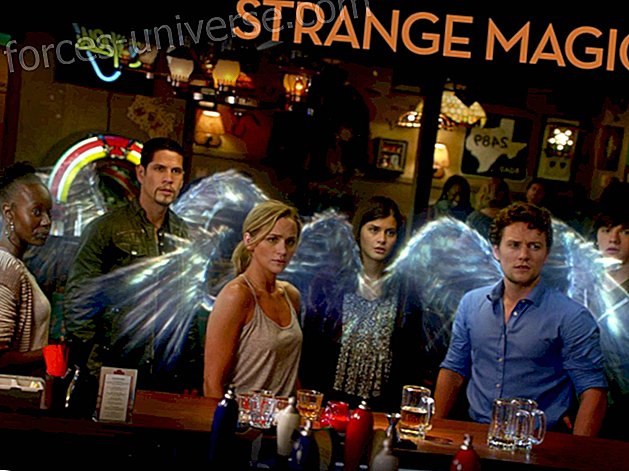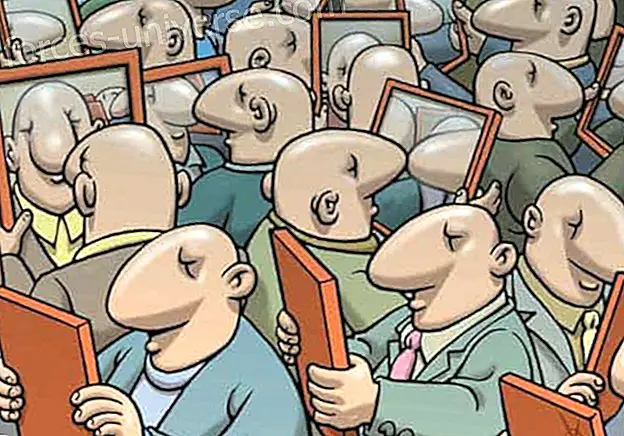 We stop to talk about neuroeducation and emotion as the basis of learning with Francisco Mora Teruel, doctor of Medicine, doctor of Neurosciences and Professor of Human Physiology. And we do it from reading your book Neuroeducation, you can only learn what you love. "Emotion is the vehicle that carries words and their meaning, " he tells us in this interview.
We stop to talk about neuroeducation and emotion as the basis of learning with Francisco Mora Teruel, doctor of Medicine, doctor of Neurosciences and Professor of Human Physiology. And we do it from reading your book Neuroeducation, you can only learn what you love. "Emotion is the vehicle that carries words and their meaning, " he tells us in this interview.
It can only be taught through joy. ” What a great phrase!
Joy is a positive feeling of encouragement that nobody doubts always leads to do things. Awake curiosity. Focus attention. Associates events and events and the individual learns easy. The ultimate substrate of that joy is the emotion on.
Young children would be happier and learn more outdoors than in the classroom, you say in the book.
The brain has early functioning codes (no doubt, recapitulation of the evolutionary process) that, in those early years, are activated with the direct and real sensory of the world, and not with ideas or abstracts. That is, they are activated mainly with the sensation and perception of the real. And the sensations, such as what a leaf is, and its colors, its sizes, its shapes, its texture, its details and smells, its different crackling when broken ... are what the child best learns and records having the same reality of the leaf in your hands. Moreover, for the child to learn well what a leaf is, you have to show him the real tree or shrub from which it comes. And the color, not of that isolated leaf, but of the color and the movement that it acquires when it is in the leafy of the tree. Learning and living from it the genus homo has survived millions of years. And so those survival codes have been recorded whose value is now to recognize them and make them work when their activity appears early in the child in the first years.
And all that is not found in classrooms, in nurseries, but in the countryside and mountains. And to think that there are children in big cities who have never seen a real cow and only a digital cow ...!
And finally, let me tell you, that the concepts, those basic elements of the great building that is human thought, are solidly constructed, and with other brain codes. And this is taught and learned in the classroom.
Emotion as the basis of learning is one of the ideas that it emphasizes. Surely this is experienced every day by teaching professionals when they are the ones who get excited teaching.
Yes, I consider emotion as the epicenter of all teaching. Emotion is the vehicle that carries words and their meaning. Without emotion there is no meaning, and without meaning nothing can be learned (and meaning means pleasure or pain, reward or punishment). And it is that emotion that, if handled properly, arouses curiosity and attention. And with that, the proper understanding of those words. And that applies to both the humanities and the sciences and mathematics included, of course.
It tells us a bit about the emotional brain and its functioning.
The emotional brain is strategically located between the areas of processing of all sensory information (when we see a rose) (sensory areas of the cerebral cortex) and the processing of that information to its highest abstract levels (when we cognitively elaborate the idea of rose or apple beyond the shape, color, texture or smell they have) (areas of association of the cerebral cortex). All this means that all sensory information is processed by the emotional brain before its elaboration by the cognitive brain.When a rose is contemplated, or we pick an apple, or decipher a mathematical formulation, all the elements that our brain manages to perform its operations, those elements that we call abstracts, ideas, or concepts, are already bathed in emotion, good or bad, of definitive meaning even when it is unconsciously. In essence we are emotional beings.
What basic concepts of neuroeducation should anyone who is dedicated to teaching have to have learned?
Let me just highlight the main idea here. And it is the idea that leads to making the teacher and the teacher aware that their teaching changes the physics and chemistry of the brain from which they learn. And this is multiplied by millions when that teacher teaches children of a few years. The teacher is transforming, in many cases perhaps forever, the child's brain. Hence the enormous responsibility of the teacher. Hence the enormous importance for a society, which has to determine and select very carefully who will be teachers and professors.
 How could this figure of neuroeducation advisor mentioned in the book be implemented, to serve as a bridge between knowledge in this area and teaching professionals?
How could this figure of neuroeducation advisor mentioned in the book be implemented, to serve as a bridge between knowledge in this area and teaching professionals?
Everything is yet to be elaborated. But I understand that the neuroeducator could be a new figure in schools that would serve to channel solutions to problems that arise in children in schools, be it autism, dyslexia, dyscalculia, subtle brain injuries that make learning difficult. And of course to establish and implement better teaching based on current knowledge about how the brain works.
What should we know about neuroeducation as parents?
The parents can detect very early, that is, in the first years of the child's life, some deficit, even subtle and almost undetectable in the nursery or school. These years are key to early interventions and to solve the problem effectively. And parents in the intimacy of the family are key in these early stages.
How did your interest in neuroeducation arise?
I've been studying the brain for many years. And teaching at the University and particularly, in Medicine, the functioning of the central nervous system. In the last ten years, cognitive neuroscience has taken a turn when it comes to better understanding the substrate neuronal mechanisms of learning and teaching and the many factors that influence it. I thought it was the mature time to say something about it.
Are you happy teaching, either in the classroom or putting your knowledge in a book?
Yes I am. And that feeling Happy is essentially promoted by the feeling that I can be helping people.
Thank you.
By S nia Marqu s Camps
Source: the emotional
Francisco Mora Teruel: It can only be taught through joy






